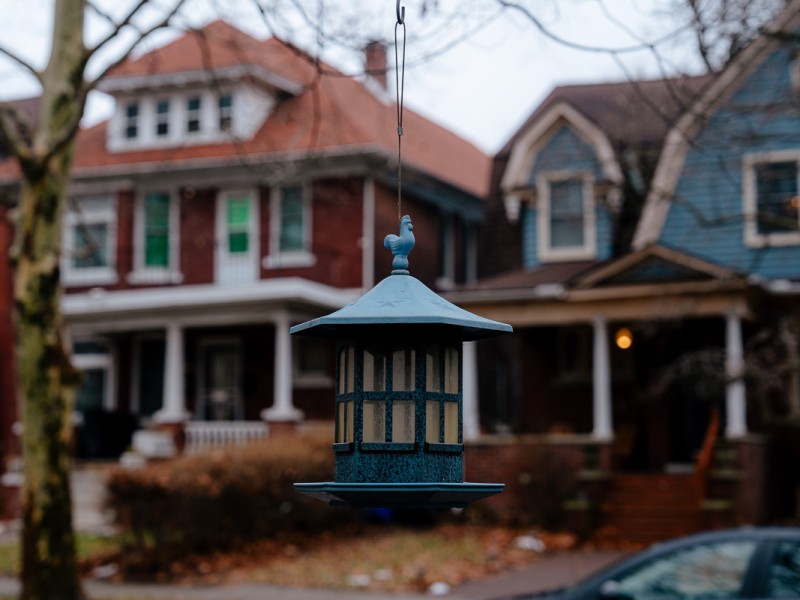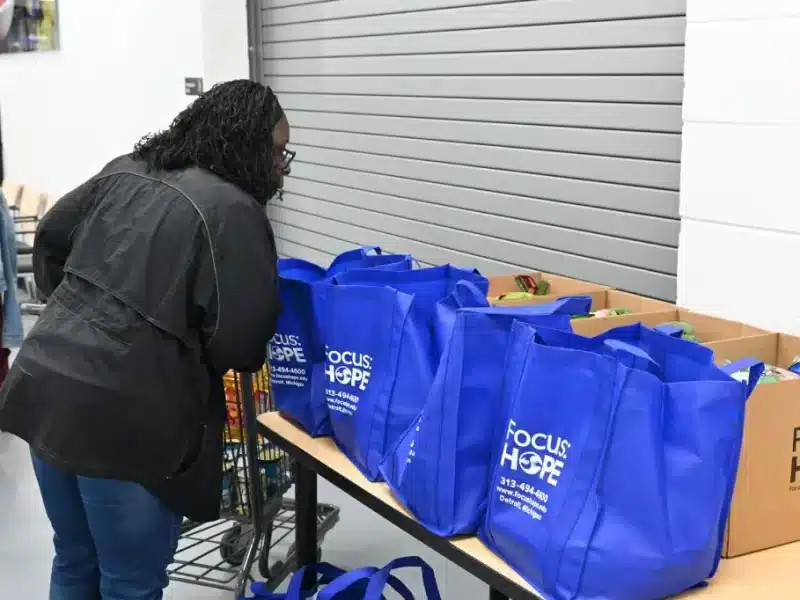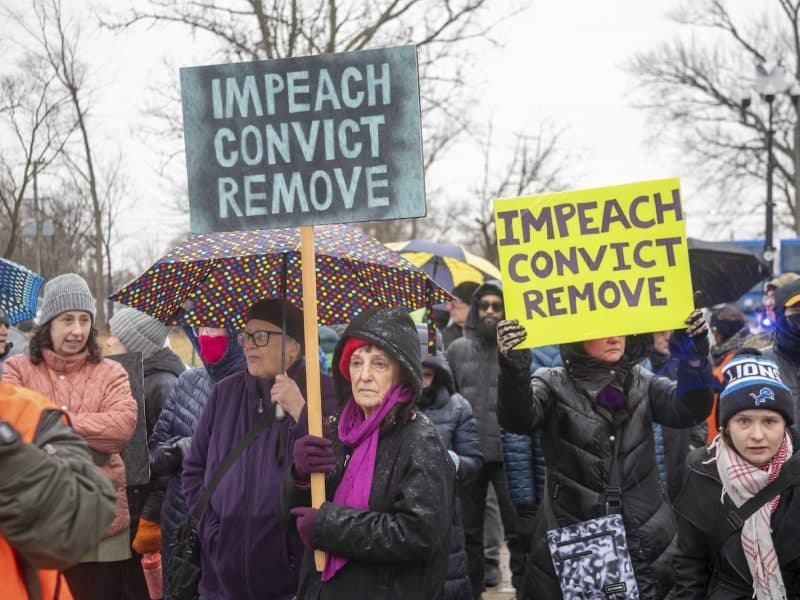8 Slam-Dunk Ways Detroit is Getting More Green
Finally, it
seems like folks around here are seeing that raking in the green and living green aren’t mutually exclusive. Here are 8 ways everything’s going green in Detroit.
Environmental concerns have often taken a back seat to more immediate ones in Detroit — like the economy. But finally, it seems like folks around here are seeing that the two are not mutually exclusive. Although Detroit isn’t about to be mistaken for Seattle, or
even Chicago, “green” is sneaking up. Take a peak at Model
D’s picks for the eight great ways it’s happening.
Greenways
Significant investments from the Community Foundation for Southeast and the Michigan Department of Transportation have encouraged
a flurry of the planning and development of trails in Detroit and Hamtramck.
These are not your North Country Trails, but urban versions that
encourage cycling and walking, often tied in with arts and culture —
the Midtown Loop will connect the Detroit Institute of Arts to Wayne
State University and the Detroit Public Library, something a trail in
northern Oakland County would be hard-pressed to do.
Other
significant greenways under development include the Dequindre Cut,
Corktown-Mexicantown Greenlink, Southwest Detroit-East Dearborn Greenway, and the Connor Creek Greenway. The Greening of Detroit is working to coordinate
all the different entities involved in moving the various projects
forward.
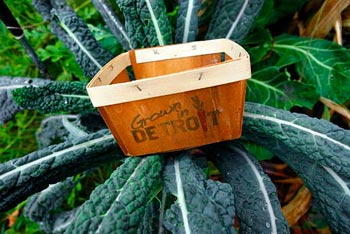 Urban Agriculture
Urban Agriculture
Food desert, schmesert.
Not to make light of a lack of chains…and there are areas of the city that pretty much force their residents to shop for food at gas stations…
But Detroit hardly lacks anywhere to shop for food. And locally-grown options are increasing in number. The collaborative Detroit Garden Resource Program is coordinating clusters of family, community and school gardens. Produce is sold at Eastern Market and at neighborhood farmers markets like in Grandmont Rosedale. Some of these gardens, like at Catherine Ferguson Academy and EarthWorks are truly inspirational and, even better yet, productive. One thing Detroit has in spades is vacant land, and urban gardening is one cohesive, productive and healthy way to make use of this resource.
Green Building
The D might not be Grand Rapids yet, but sustainable architecture and construction is becoming less of an anomaly around here. WARM Training offers energy audits and its Southwest Detroit office serves as a green building showcase. The second phase of affordable housing in North Corktown will be built with an eye to energy efficiency. Blue Cross Blue Shield has built the first-in-the-nation LEED-certified parking garage. Developers are installing geothermal heating and cooling systems into Brush Park condos as well as commercial rehabs. The Park Bar uses LED lighting, a technology which is also planned for Foran’s and Eph’s. Even the Coleman A. Young Municipal Center has gone green…maybe there’s hope yet for this town’s environmental cred.
Recycling
It takes no great doors of perception to notice Detroit’s pathetic commitment to recycling: curbside does not exist. Here’s how it’s improving: the city has partnered with Recycle Here! to offer recycling at its New Center facility as well as at four mobile sites around the city. Future plans include instigating some curbside pickup in areas deemed dense enough to sustain the service.
Alternative Energy
TechTown’s NextEnergy has attracted a lot of attention for its success
as an incubator for companies in the field of renewable energy. It’s a one-stop shop: its testing
platform can vet various types of renewable fuels as well as fuel cells and the organization is working with companies involved with wind and solar power across the state. It brings together start-ups, like Titan Energy, with the federal government to procure funding and acts as a vocal advocate for the alternative energy industry.
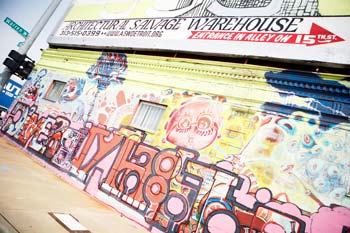 Salvaging the wreckage
Salvaging the wreckage
In a
city that demolishes as many buildings as Detroit, it is reprehensible
not to salvage and then reuse as many of the fixtures and building
materials as possible. Many individuals and businesses do it
independently, which is totes cool, but not everyone has the knowhow or
ability to do so. That’s where Woodbridge’s Architectural Salvage Warehouse comes
in. The organization collects everything from old windows to tubs to
moldings and resells them at a reasonable fee to folks in the midst of
a “This Old House” renovation. Everyone wins, since donations are
tax-deductible, materials are kept out of landfills and energy and
materials are saved. A great example of the “Reuse” principle of
environmentalism.
The city of Detroit does not currently allow salvage from homes and
buildings it demolishes — which is a shame, not just from a
waste-stream standard, but from an economic one. Deconstruction creates
two to five jobs for each one that demolition does. In a work-starved
city, those seem like pretty good numbers.
Transit
One of the most common sense ways to reduce carbon dioxide emissions is
to get cars off the road. Once a sacreligious sentiment in
auto-indoctrinated Detroit, momentum is growing for more and better
transit options in the metro area. The Detroit Transit Options for Growth Study recently held a series of public meetings that shared
plans for light rail along Woodward, while a private initiative
recently announced plans to do something similar. (Um, guys? Get
together, K? Thanks.)
Meanwhile, though slowed down a bit, commuter rail between downtown and Ann Arbor is a concept far from dead in the
water. On the bus tip, SMART is getting into the 21st Century with
Google trip planning and the Rosa Parks Transit Center holds great
promise for better integrating SMART with DDOT and the People Mover. If
the environment won’t motivate people to ditch those rides, perhaps
$4/gallon gas and consistent, convenient transit service will. Get on
the bus.
Green is good for business
Michigan Green Safe is helping Detroit restaurants like Mudgie’s and Detroit Evolution Laboratory make
carry-out a guilt-free dining decision, with their compostable cartons
and biodegradable cutlery. The organic-before-organic-was-trendy Avalon
International Breads composts and recycles. And “green collar” jobs are being created, too. GET Manufacturing just added 125 jobs at a paint factory north of Eastern Market that will be producing environmentally-friendly automotive products, including motor oil and cleaners.
